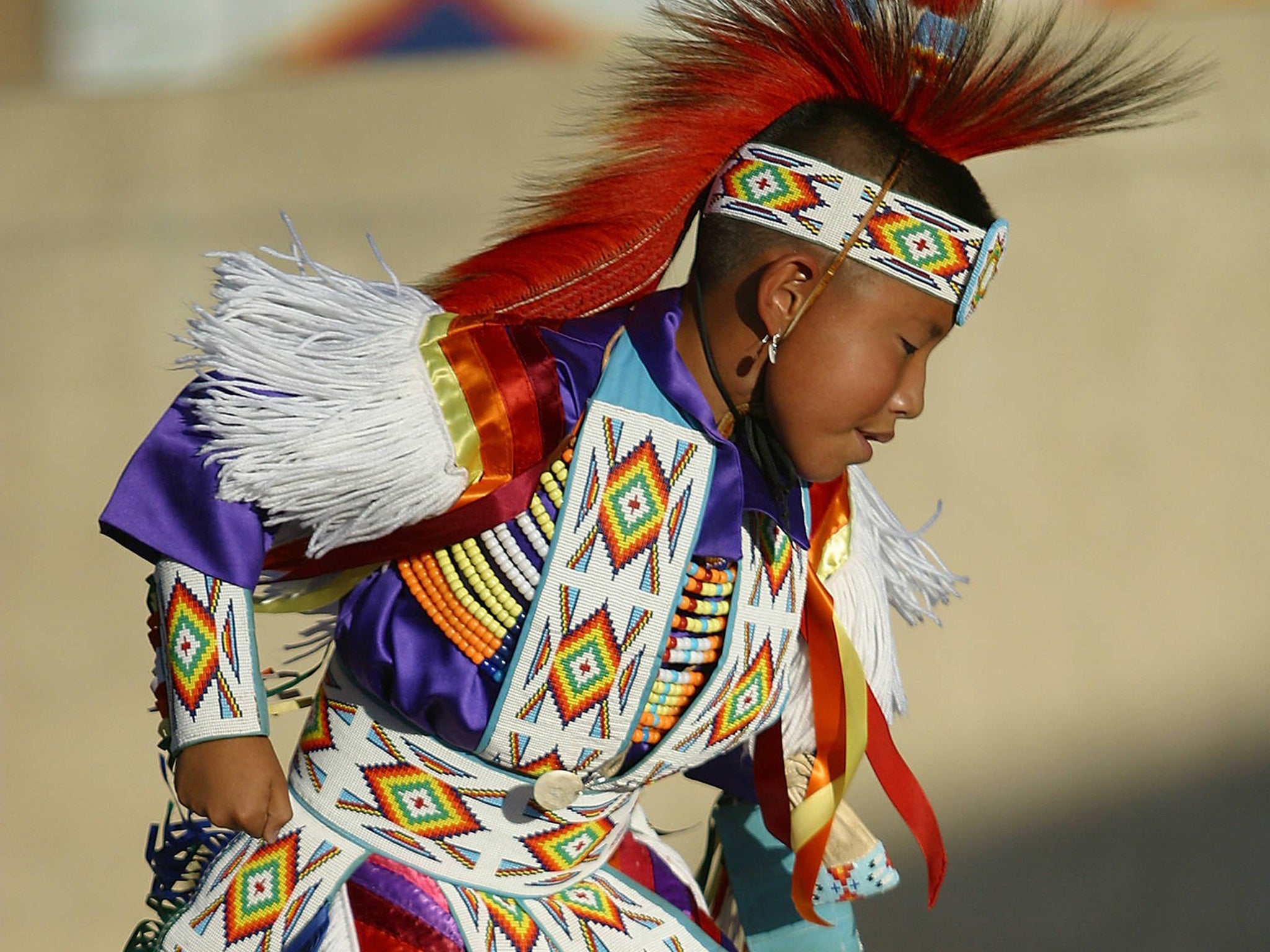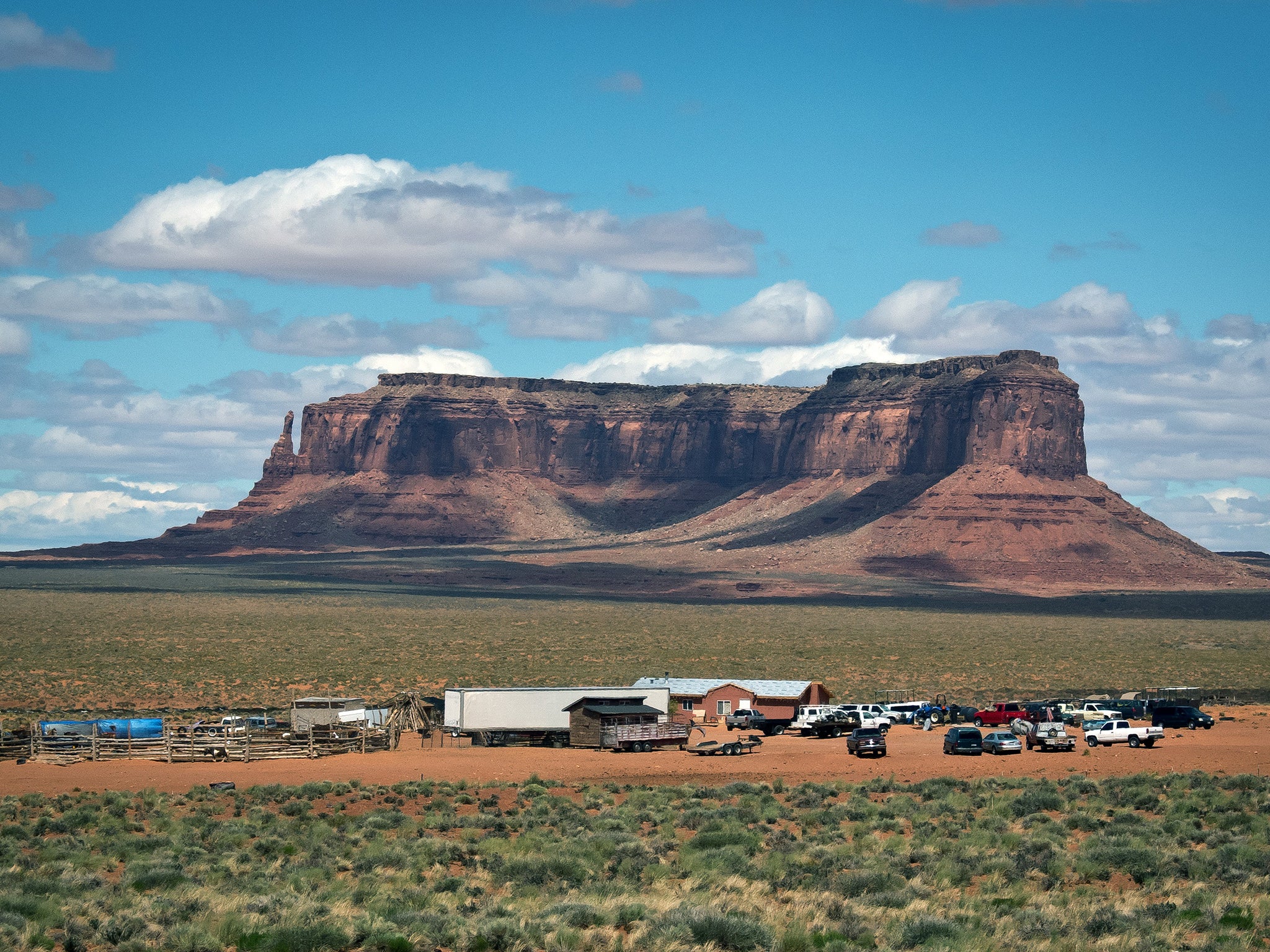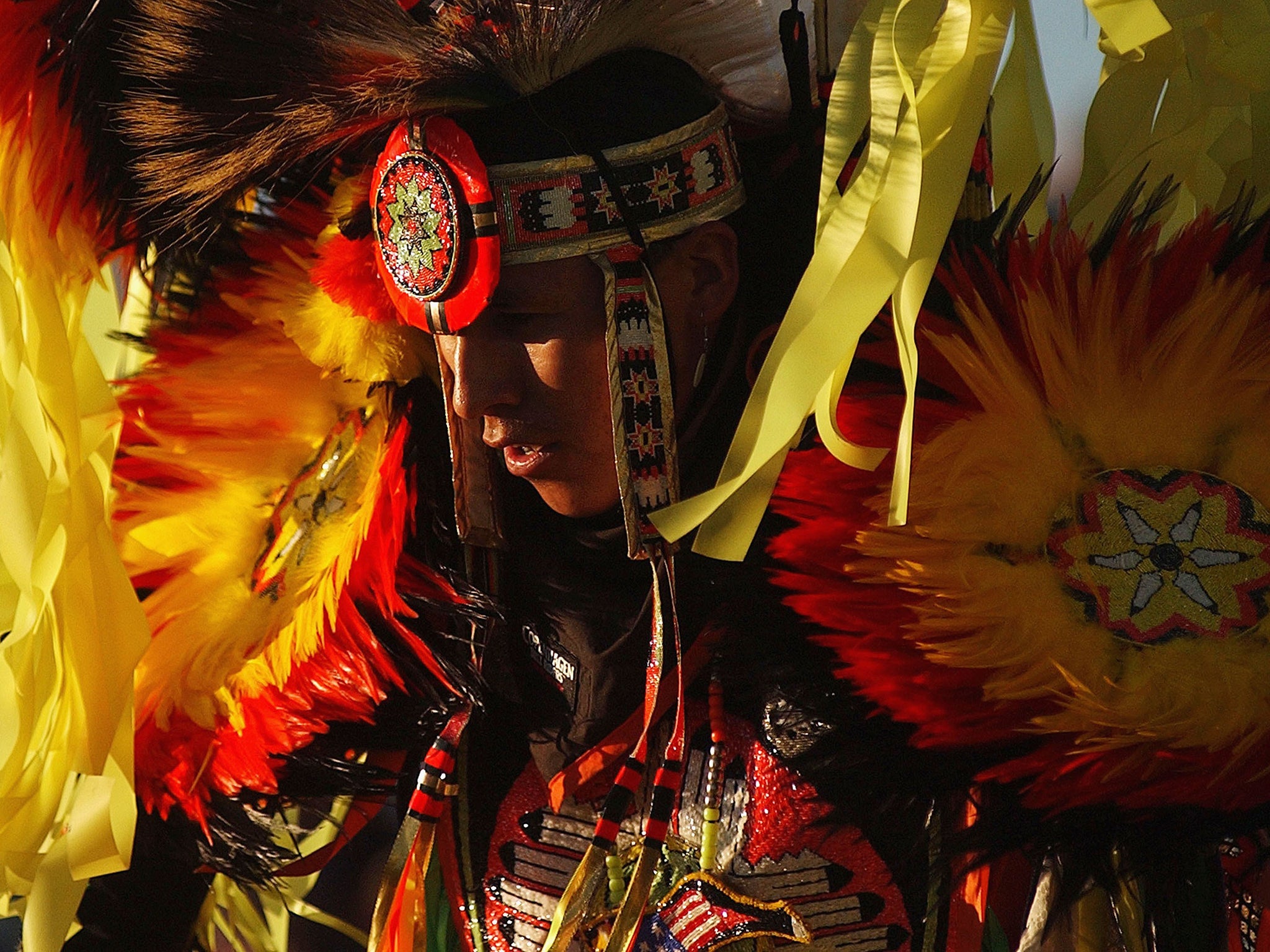A hard-won victory for the long-suffering people of the Navajo Nation as US agrees $554m payout
The largest-ever payment made to a native American tribe will be officially agreed on Friday. It is compensation for government mismanagement of tribal resources for over half a century

Your support helps us to tell the story
From reproductive rights to climate change to Big Tech, The Independent is on the ground when the story is developing. Whether it's investigating the financials of Elon Musk's pro-Trump PAC or producing our latest documentary, 'The A Word', which shines a light on the American women fighting for reproductive rights, we know how important it is to parse out the facts from the messaging.
At such a critical moment in US history, we need reporters on the ground. Your donation allows us to keep sending journalists to speak to both sides of the story.
The Independent is trusted by Americans across the entire political spectrum. And unlike many other quality news outlets, we choose not to lock Americans out of our reporting and analysis with paywalls. We believe quality journalism should be available to everyone, paid for by those who can afford it.
Your support makes all the difference.When senior figures from the US Government sit down with the President of the Navajo Nation in Window Rock, Arizona on Friday, their meeting will mark an historic moment in the relationship between native Americans and the country that came after them.
In the largest-ever payment made by the US to a native American tribe, the Obama administration has agreed to compensate the Navajo people to the tune of $554m (£339m), thus settling a lawsuit that had accused the federal government of mismanaging the tribe’s resources for over half a century.
The agreement will be signed at Friday’s event in Window Rock, the capital of the vast Navajo Nation, which has more than 300,000 members and covers 27,000 square miles of Arizona, New Mexico and Utah, including the iconic Monument Valley. It is the largest native American nation by both land mass and population.
Some 14 million acres of that land is held in trust for the tribe by the US, which leases it for logging, farming, mining and energy development in a system established during the 19th century. But according to the lawsuit, which originally demanded $900m in compensation, the federal government has neglected to handle those natural resources responsibly since at least 1946.
As part of the settlement, the Navajo Nation has agreed to waive the suit, which was first filed in 2006. The litigation alleged that the government did not properly reimburse the tribe for the resources mined from its reservation, which include coal, uranium, oil and gas. The US, it argued, failed to negotiate adequate deals with the companies extracting those resources, failed to ensure the tribe was paid sufficiently, and bungled its investment of the proceeds on the tribe’s behalf. Navajo Nation President Ben Shelly described the settlement as “a victory for tribal sovereignty”. In a statement, he said: “The Navajo Nation has worked tirelessly for many years to bring this issue to a close. After a long, hard-won process I am pleased that we have finally come to a resolution on this matter to receive fair and just compensation for the Navajo Nation.”

The outgoing US Attorney General, Eric Holder, said the agreement demonstrated the administration’s commitment to “strengthening [its] partnership with tribal nations”, adding: “This historic agreement resolves a long-standing dispute between the United States and the Navajo Nation, including some claims that have been sources of tension for generations.”
The settlement is one of several similar agreements reached between the Obama administration and federally recognised tribes, in the hope of improving relations between the US and native Americans, and resolving instances of what Mr Holder called “protracted and burdensome litigation”. Together, those agreements total a reported $2.61bn.
The US Department of the Interior oversees almost 56 million acres of land held in trust for native American tribes, and more than 100,000 leases. It also manages some 2,500 tribal trust accounts on behalf of more than 250 tribes. In 2011, the administration agreed a $380m settlement with the Osage tribe of Oklahoma, ending a lengthy lawsuit over government mismanagement of the tribe’s resources and finances.
The following year, the federal government settled breach of trust cases with 41 tribes, agreeing to $1bn in payouts. Deswood Tome, a special adviser to President Shelly, said the current administration had been “exceptional” in its efforts to adequately compensate native Americans. “President Obama has been very welcoming to tribes; he has reached out to tribal leadership and done a magnificent job in that respect,” he said.

Sam Hirsch, acting assistant attorney general for the US Justice Department’s Environment and Natural Resources Division, is among officials expected to attend Friday’s ceremony. “This settlement is yet another example of the administration’s promise to strengthen the ties between the United States and the Navajo Nation,” Mr Hirsch said in a statement.
Many Navajo people live in poverty, with unemployment levels averaging more than 40 per cent, and some tribal members in remote areas living without electricity or running water. Though the allocation of the funds from the settlement is yet to be decided, it is expected to go towards improving infrastructure, such as roads, power, water and telecommunications. President Shelly has promised to host meetings to allow Navajo Nation members a say in how the settlement is spent.
Officials also stressed that while the settlement accounts for the federal government’s past mismanagement of tribal resources, it would not prevent lawsuits over any future misconduct by the US, nor did it apply to separate suits concerning pollution. For many years after uranium was discovered on Navajo land, it was mined without adequate environmental protection for workers and waterways, which, the Navajo claim, has led to increased cancer rates.
Join our commenting forum
Join thought-provoking conversations, follow other Independent readers and see their replies
Comments